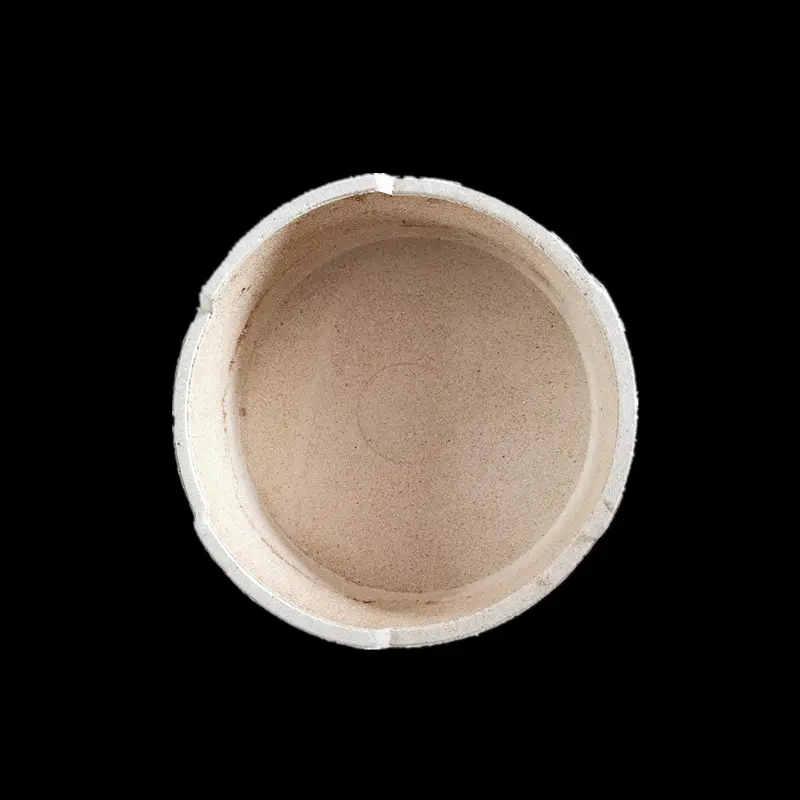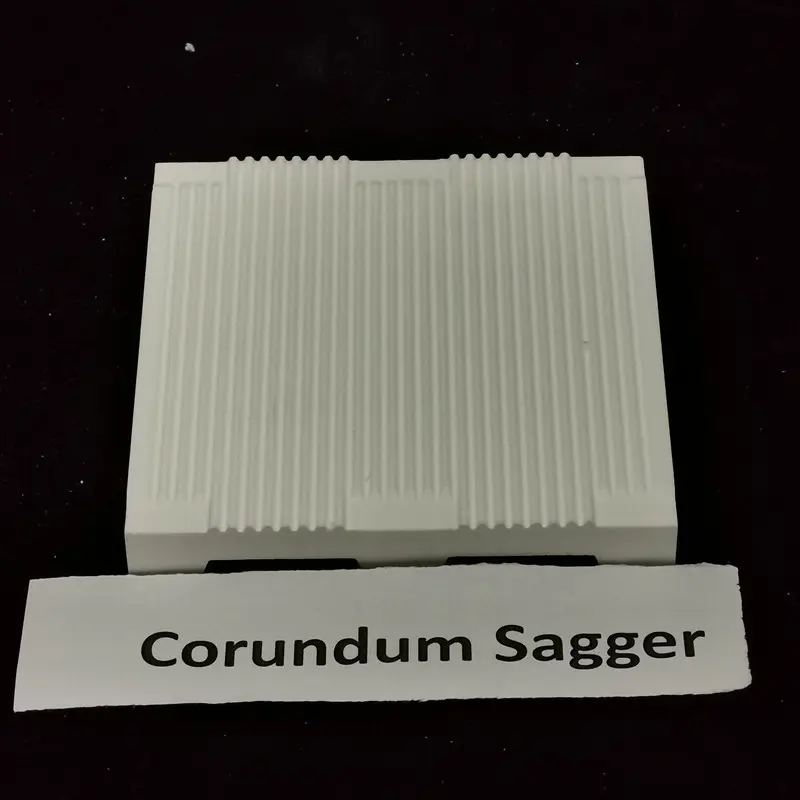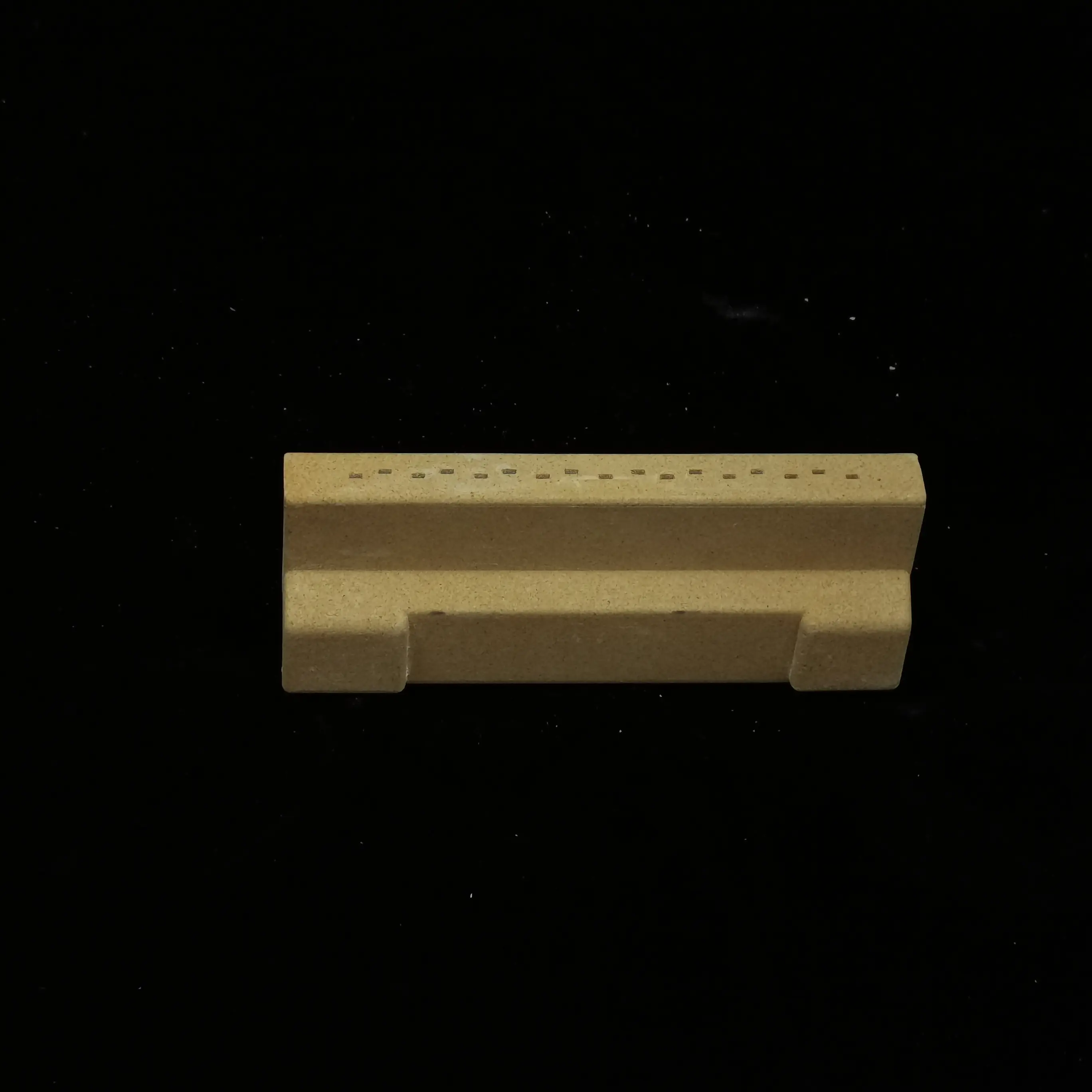Cordierite Ceramic Insulators with Screw Thread for Heating Wire Applications
1. Material Composition and Properties
Cordierite Ceramic Characteristics:
-
Ultra-Low Thermal Expansion (1.5–2.0 × 10⁻⁶/°C): Prevents cracking under rapid temperature fluctuations (e.g., repeated heating cycles from 20°C to 1000°C).
-
High Dielectric Strength (>15 kV/mm): Ensures electrical insulation even in high-voltage environments.
-
Chemical Inertness: Resists corrosion from acids, alkalis, and molten salts.
-
Mechanical Stability: Compressive strength exceeding 200 MPa, suitable for threaded mechanical loads.
Additives and Enhancements:
-
Mullite or Silicon Carbide: Added to improve fracture toughness.
-
Glazing: Applied to screw threads to reduce friction during wire insertion and enhance moisture resistance.
2. Manufacturing Process
-
Powder Preparation:
-
Cordierite precursor powders (magnesium oxide, alumina, silica) are mixed with binders and sintered at 1400–1450°C to form a homogeneous ceramic body.
-
-
Threaded Insulator Forming:
-
Dry Pressing: Powders are pressed into threaded molds for simple geometries.
-
CNC Machining: Pre-sintered "green" ceramics are precision-machined for complex screw threads (e.g., M4–M12 metric threads).
-
Slip Casting: Used for hollow insulators with internal threads.
-
-
Sintering and Finishing:
-
Fired at 1350–1400°C to achieve final density.
-
Threads are polished or coated with lubricious materials (e.g., boron nitride) to prevent galling.
-
3. Design Advantages
-
Secure Wire Fixation: Screw threads eliminate wire slippage in vibrating environments (e.g., industrial furnaces or automotive exhaust systems).
-
Modular Assembly: Threaded designs allow easy replacement or stacking in multi-wire configurations.
-
Thermal Management: Cordierite’s low thermal conductivity (1.5 W/m·K) localizes heat to the wire, improving energy efficiency.
4. Key Applications
| Industry | Use Case | Benefits |
|---|---|---|
| Industrial Heating | Heating element supports in kilns, ovens (up to 1200°C) | Resists thermal cycling; outlasts metal or polymer alternatives. |
| Automotive | Glow plug insulators, electric vehicle battery heating systems | Withstands engine compartment vibrations and thermal shocks. |
| Consumer Appliances | Threaded insulators in hair straighteners, water heater coils | Safe insulation for high-wattage household devices. |
| Aerospace | Heating wire mounts in de-icing systems and avionics | Lightweight yet durable for extreme operational conditions. |
5. Innovations and Future Trends
-
3D-Printed Threaded Insulators: Additive manufacturing enables complex internal cooling channels for high-power applications.
-
Smart Insulators: Embedded fiber-optic sensors for real-time temperature/load monitoring.
-
Eco-Friendly Cordierite: Recycled silica/alumina sources reduce production carbon footprint.
6. Challenges and Solutions
-
Thread Wear: Solution: Diamond-like carbon (DLC) coatings extend thread lifespan.
-
Brittleness: Solution: Nano-reinforced cordierite composites (e.g., SiC whiskers) improve impact resistance.
-
Cost: Solution: Automated machining reduces labor-intensive thread finishing.
Conclusion
Cordierite ceramic insulators with screw threads address critical needs in high-temperature wire fixation by merging unmatched thermal stability with mechanical reliability. As industries demand higher efficiency and smarter materials, advancements in additive manufacturing and nanocomposites will further expand their role in next-generation heating systems.




